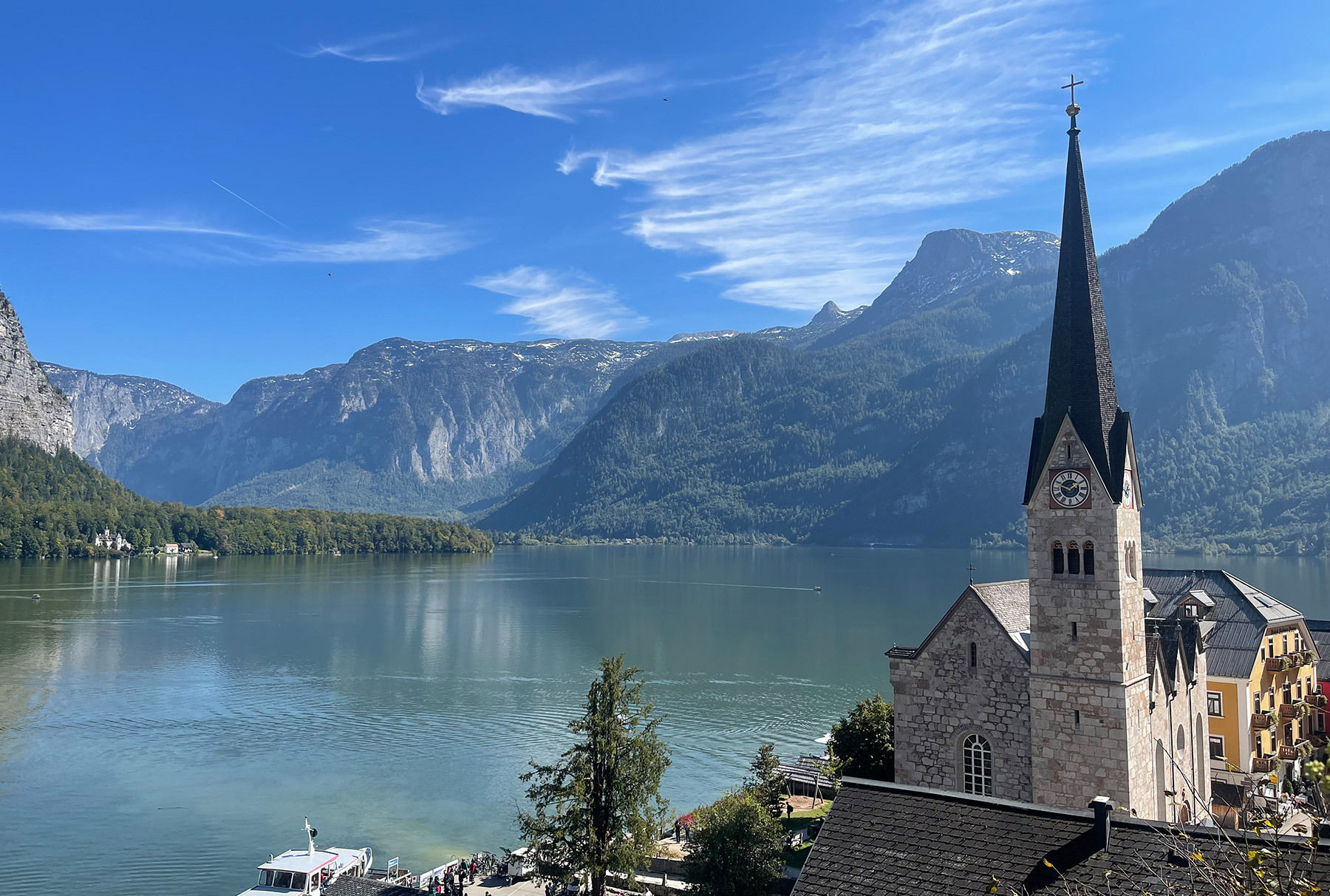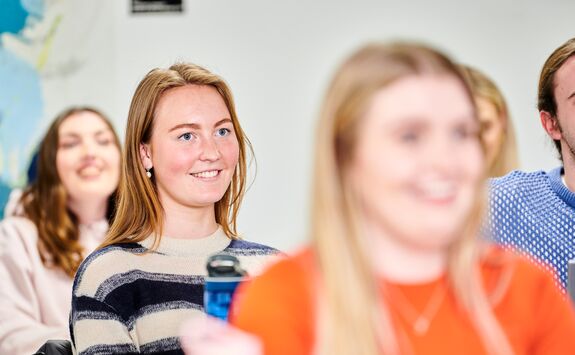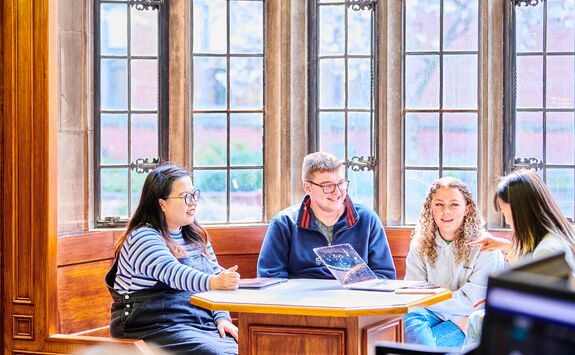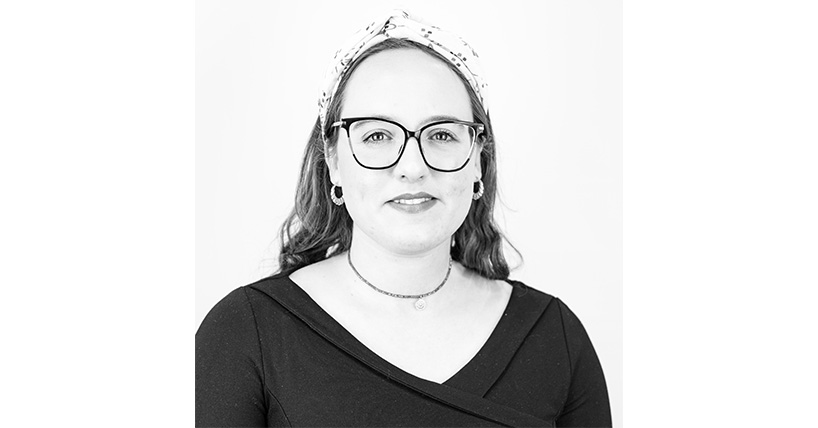German Studies
A welcoming and friendly department, we offer research and teaching expertise about the rich, inspiring, and challenging legacies of the German-speaking world.
Graduate stories
My cross-cultural communication and language skills helped set me apart when applying for the role at the LEGO Group. My job involves occasional travel, including visits to the German office, where my language skills come in handy!
What you'll learn
In the School of Modern Languages, classes focus on themes that:
- develop a deeper understanding of German-speaking culture and society in a global context
- encourage you to refine your linguistic, intellectual and writing skills, in both German and English
- enhance your ability to navigate transcultural challenges and act as an intermediary between languages and cultures
There's so much more to studying German at university than just learning a language. At Newcastle, we believe that language and culture are intimately linked and the modules our students take reflect this. Your German development is embedded in an expanded knowledge of German-speaking culture and society.
Examples of areas you may study are:
- linguistics
- literature
- visual cultures (including film and performance)
- history
- cultural studies
As you progress through your degree, you can specialise in a particular area by taking one of a range of optional German modules. These modules focus on different aspects of historical and contemporary German-speaking culture and society.
You may be able to taking a beginner’s Dutch language module in your second year. If you would like to take this further you could take an intermediate Dutch module in final year.
How you'll study
Language and cultural modules draw on authentic materials from the German-speaking world. You will be encouraged to work closely with these materials throughout your degree.
Some lectures and seminars will be taught entirely in German. In others, you'll actively practice German skills through:
- engaging with German texts via guided reading and textual analysis
- practising your written German
- leading discussions in German
You will also be shown how to work closely with a broad range of authentic cultural materials in an advanced way. In all classes, you will develop your analytical, presentation and writing skills.
Why study German at Newcastle?
Passionate, research-inspired teaching
We're passionate about all aspects of German, Austrian, and Swiss cultures. We:
- provide cutting-edge language pedagogy
- put research-inspired teaching at the heart of our German language degree programmes
In language classes and cultural modules, you will be taught by experts who will share their inspirational work with you in a collaborative way. You will:
- join a culture of critical thinking
- feel supported to move beyond your intellectual comfort zone
- gain a deep understanding of German-speaking cultures and societies
- feel encouraged to reflect critically on your own culture and the ideologies that shape your everyday life
Strong connections with the German-speaking world
Newcastle-upon-Tyne has strong connections with the German-speaking world. The city has been twinned with Gelsenkirchen since 1948. There are also a large number of German-speakers living and working in the city and wider region.
German at Newcastle is part of the broader North East German Network. This promotes German and German-speaking culture in the region. We also work closely with local primary and secondary schools and encourage our students to get involved in these activities.
Newcastle is an ideal place to explore German-speaking culture more broadly:
- for music lovers, The Glasshouse showcases a broad range of contemporary and classical German music
- the independent Tyneside Cinema offers screenings of iconic and ground-breaking German-language films
- galleries, including the Baltic and the Hatton Gallery, showcase contemporary and modern art
A rich history of German Studies
We have taught German for more than a century here at Newcastle – German language teaching dates back to the 19th century.
We are committed to continuing this proud history and have delivered an academic curriculum for more than sixty years. In 2009, we celebrated 50 years since the first Chair of German Studies was introduced at Newcastle University.
In that time, more than 90 professors, lecturers and Lektor:innen have contributed to German studies at Newcastle.
Experiences beyond the classroom
You'll have lots of opportunities outside of the classroom to:
- improve your spoken German
- immerse yourself in German-speaking culture
- reinforce your language studies
Extra-curricular activities in the German department include:
- a regular Filmabend
- an annual Weihnachtsfeier
- monthly gatherings of staff and students over a beer at the German Stammtisch, or a coffee at our Kaffeeklatsch
- a regular newsletter about our activities





